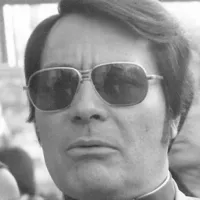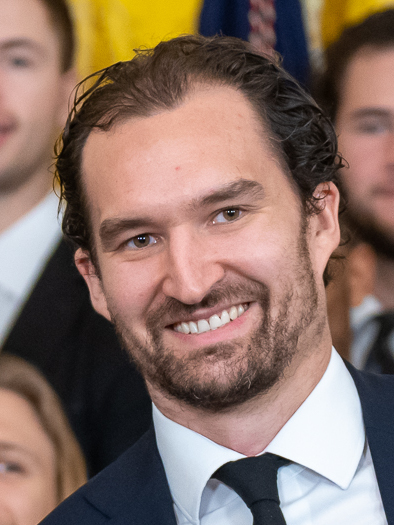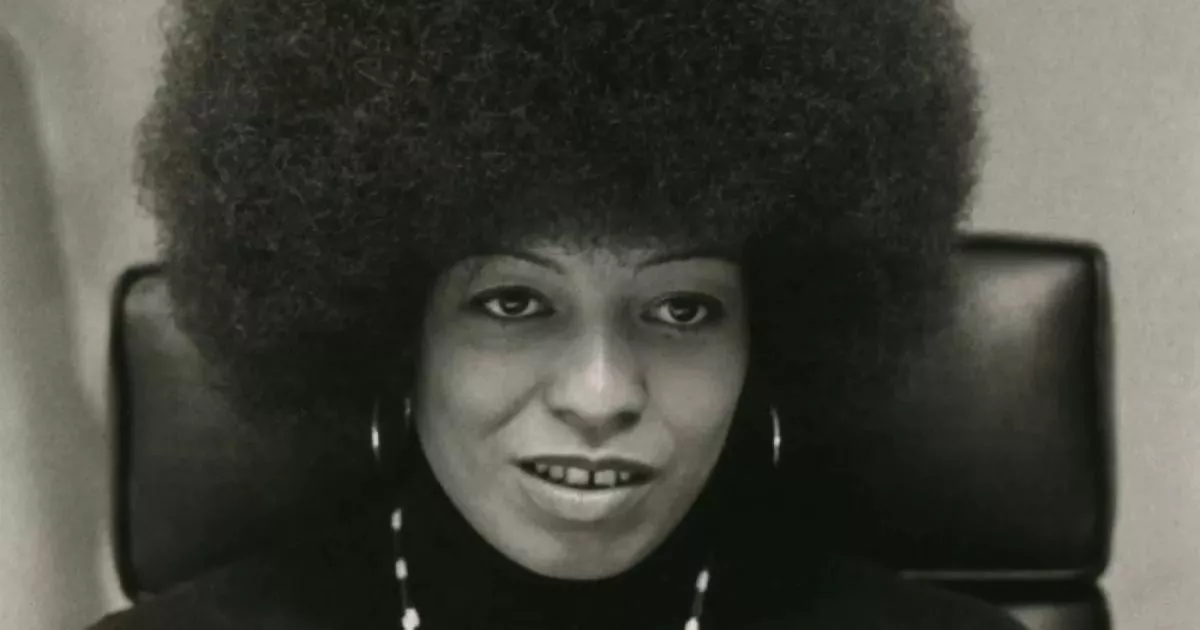Discover the career path of Angela Davis, from the first major opportunity to industry-changing achievements.
Angela Davis is an American political activist, philosopher, academic, and author known for her work in civil rights and social justice. A former member of the Communist Party USA, she advocates for prison abolition, racial equality, and gender equality. She gained prominence in the 1960s and 70s through her involvement in the Black Panther Party and her own activism. Davis faced criminal charges in connection with a 1970 courtroom shooting, leading to a highly publicized trial and her eventual acquittal. She continues to lecture and write on issues of race, class, and gender, remaining a prominent figure in contemporary social and political discourse.
1965: Graduation from Brandeis
In 1965, Angela Davis graduated magna cum laude from Brandeis University and was a member of Phi Beta Kappa.
1968: Master's Degree from UC San Diego
In 1968, Angela Davis earned a master's degree from the University of California, San Diego.
1968: Joined Communist Party and Black Panther Party
In 1968, Angela Davis joined the Communist Party and became a member of the Black Panther Party, working with the Los Angeles branch where she directed political education. She retained her Communist Party membership while continuing to work with the Black Panther Party.
September 19, 1969: Fired From UCLA
On September 19, 1969, the Board of Regents fired Angela Davis from her position at UCLA due to her membership in the Communist Party, influenced by California Governor Ronald Reagan.
1969: Acting Assistant Professor at UCLA
Beginning in 1969, Angela Davis became an acting assistant professor in the philosophy department at UCLA, choosing it over Princeton and Swarthmore due to its urban location. She was known as a radical feminist, activist, a member of the Communist Party USA, and an affiliate of the Black Panther Party.
1969: Hired and Fired at UCLA
In 1969, Angela Davis was hired as an assistant professor of philosophy at UCLA. However, the Board of Regents fired her due to her membership in the CPUSA.
June 20, 1970: Second Firing from UCLA
On June 20, 1970, Angela Davis was fired again from UCLA due to "inflammatory language" used in her speeches. The American Association of University Professors censured the board for this action.
August 1972: Davis visited the Soviet Union and received honorary doctorates
In August 1972, Angela Davis visited the Soviet Union at the invitation of the Central Committee, receiving an honorary doctorate from Moscow State University and another honorary degree from the University of Tashkent.
September 1972: Davis visited East Germany, met Erich Honecker, and received honorary degree
In September 1972, Angela Davis visited East Germany, where she met the state's leader Erich Honecker, received an honorary degree from the University of Leipzig, and the Star of People's Friendship from Walter Ulbricht. On September 11 in East Berlin she delivered a speech, "Not Only My Victory", praising the GDR and USSR and denouncing American racism.
1972: International Speaking Tour
In 1972, after her acquittal, Angela Davis went on an international speaking tour, including a trip to Cuba where she was received enthusiastically.
1975: Davis was a lecturer at the Claremont Black Studies Center
In 1975, Angela Davis was a lecturer at the Claremont Black Studies Center at the Claremont Colleges. Attendance was limited, and she taught in secret due to concerns from alumni benefactors about her Communist views.
1978: Davis taught at the San Francisco Art Institute
In 1978, Angela Davis taught a women's studies course at the San Francisco Art Institute, furthering her career in education.
May 1, 1979: Davis Awarded Lenin Peace Prize
On May 1, 1979, Angela Davis was awarded the Lenin Peace Prize from the Soviet Union. Later that month she visited Moscow to accept the prize, praising Vladimir Lenin and the October Revolution.
1980: Davis accepted Communist Party USA's nomination for vice president
In 1980, Angela Davis accepted the Communist Party USA's nomination for vice president, as Gus Hall's running mate.
1980: Davis became a professor at San Francisco State University
In 1980, Angela Davis became a professor of ethnic studies at the San Francisco State University, a position she held until 1990.
1981: Returns to Germany to Continue PhD
In 1981, Angela Davis returned to Germany to continue working on her PhD.
1984: Davis accepted Communist Party USA's nomination for vice president again
In 1984, Angela Davis accepted the Communist Party USA's nomination for vice president, as Gus Hall's running mate, for the second time.
1984: Davis continued teaching at San Francisco State University
In 1984, Angela Davis continued as a professor of ethnic studies at the San Francisco State University.
1990: Davis taught political science courses at San Francisco State University
In 1990, Angela Davis taught political science courses at San Francisco State University, continuing her academic career.
1991: Davis became a professor at UC Santa Cruz and Rutgers University
In 1991, Angela Davis became a professor in the History of Consciousness and the Feminist Studies departments at the University of California, Santa Cruz and Rutgers University, expanding her influence in academia.
1991: Breaks from CPUSA, Joins UC Santa Cruz
In 1991, amid the dissolution of the Soviet Union, Angela Davis broke away from the CPUSA to help establish the CCDS. That same year, she joined the feminist studies department at the University of California, Santa Cruz.
1992: Davis was a visiting professor at Syracuse University
In the spring of 1992, Angela Davis was a distinguished visiting professor at Syracuse University.
1995: Davis was Randolph Visiting Distinguished Professor of philosophy at Vassar College
In 1995, Angela Davis was the Randolph Visiting Distinguished Professor of philosophy at Vassar College.
1997: Co-founded Critical Resistance
In 1997, Angela Davis co-founded Critical Resistance, an organization focused on abolishing the prison–industrial complex.
2000: Davis formed the African American Agenda 2000
In 2000, Angela Davis, along with Kimberlé Crenshaw and others, formed the African American Agenda 2000, an alliance of black feminists.
2001: Davis spoke against the war on terror
In 2001, following the 9/11 attacks, Angela Davis publicly spoke against the war on terror, criticized the prison-industrial complex, and discussed the broken immigration system.
2003: Davis lectured at Agnes Scott College
In 2003, Angela Davis lectured at Agnes Scott College on prison reform, minority issues, and the ills of the criminal justice system.
2005: Davis commented on Hurricane Katrina
In 2005, in the aftermath of Hurricane Katrina, Angela Davis declared that the "horrendous situation in New Orleans" was due to the country's structural racism, capitalism, and imperialism.
2008: Davis became a distinguished professor emerita
In 2008, Angela Davis became a distinguished professor emerita at the University of California, Santa Cruz and Rutgers University, marking a transition in her academic career.
2008: Retirement from UC Santa Cruz
In 2008, Angela Davis retired from her position as department director at the University of California, Santa Cruz.
October 2010: Davis was a visiting professor at Syracuse University
In October 2010, Angela Davis was a distinguished visiting professor at Syracuse University.
October 31, 2011: Davis spoke at Occupy Wall Street assemblies
On October 31, 2011, Angela Davis spoke at the Philadelphia and Washington Square Occupy Wall Street assemblies.
2014: Davis returned to UCLA as a regents' lecturer
In 2014, Angela Davis returned to UCLA as a regents' lecturer, delivering a public lecture on May 8 in Royce Hall, where she had given her first lecture 45 years earlier.
2020: Davis returned to Pomona College as a distinguished lecturer
In 2020, it was announced that Angela Davis would be the Ena H. Thompson Distinguished Lecturer in Pomona College's history department, marking her return after 45 years and highlighting her enduring influence in academic circles.
Mentioned in this timeline

Donald John Trump is an American politician media personality and...

Joe Biden is an American politician who served as the...
California is a U S state on the Pacific Coast...

John Lennon was a highly influential English singer-songwriter musician and...

Jim Jones was an American cult leader who founded the...
Nova Scotia is a province in the Maritimes region of...
Trending

22 minutes ago Mark Stone Defends Mitch Marner, Discusses Leafs, and Single Elimination Tournaments.

23 minutes ago Ovechkin rested for Capitals' playoff push; uncertain about NHL future, retirement rumors surface.

23 minutes ago Nick Suzuki's Nationality, Heritage, Parents, and Role as Canadiens' Captain Analyzed

23 minutes ago Brock Nelson: A Third-Generation USA Hockey Olympian Eyes Gold in Milan

23 minutes ago Vincent Trocheck trade targets: Canadiens, Rangers, Bruins eye potential deal.

1 hour ago Connor Hellebuyck seeks Olympic redemption after NHL playoff struggles with Team USA.
Popular

Jesse Jackson is an American civil rights activist politician and...

Barack Obama the th U S President - was the...

Bernie Sanders is a prominent American politician currently serving as...

Ken Paxton is an American politician and lawyer serving as...

Michael Joseph Jackson the King of Pop was a highly...
WWE Raw a professional wrestling television program by WWE airs...
